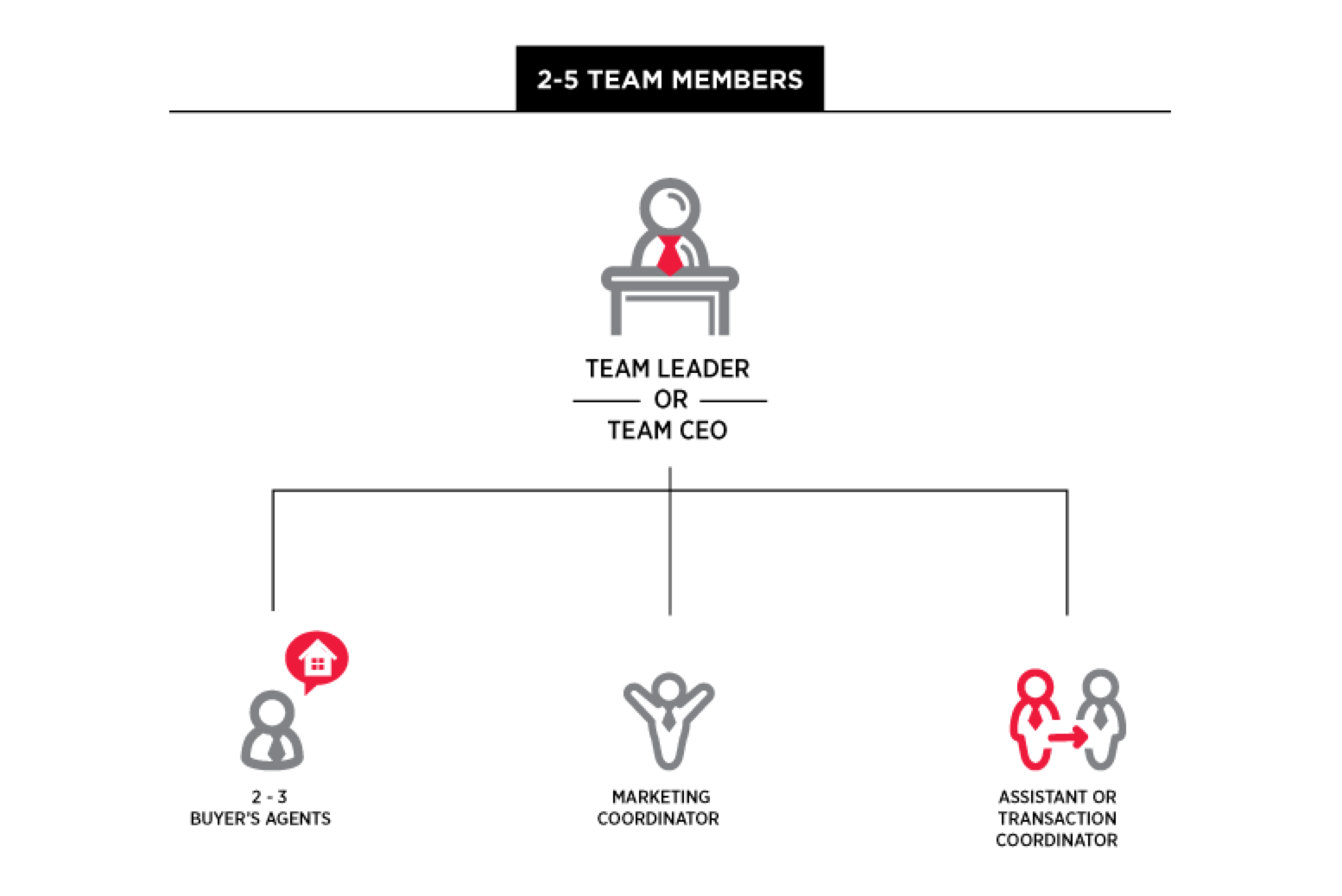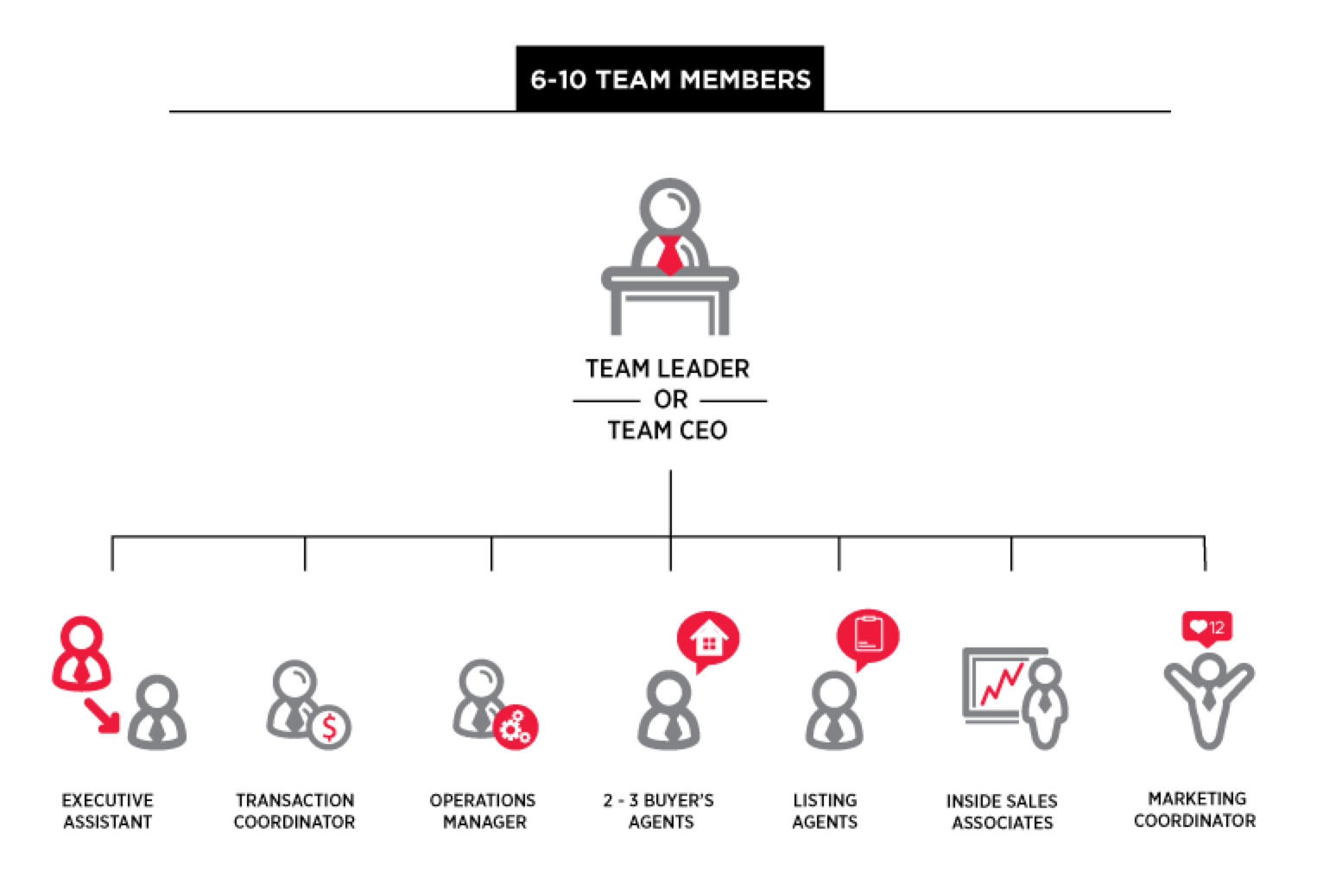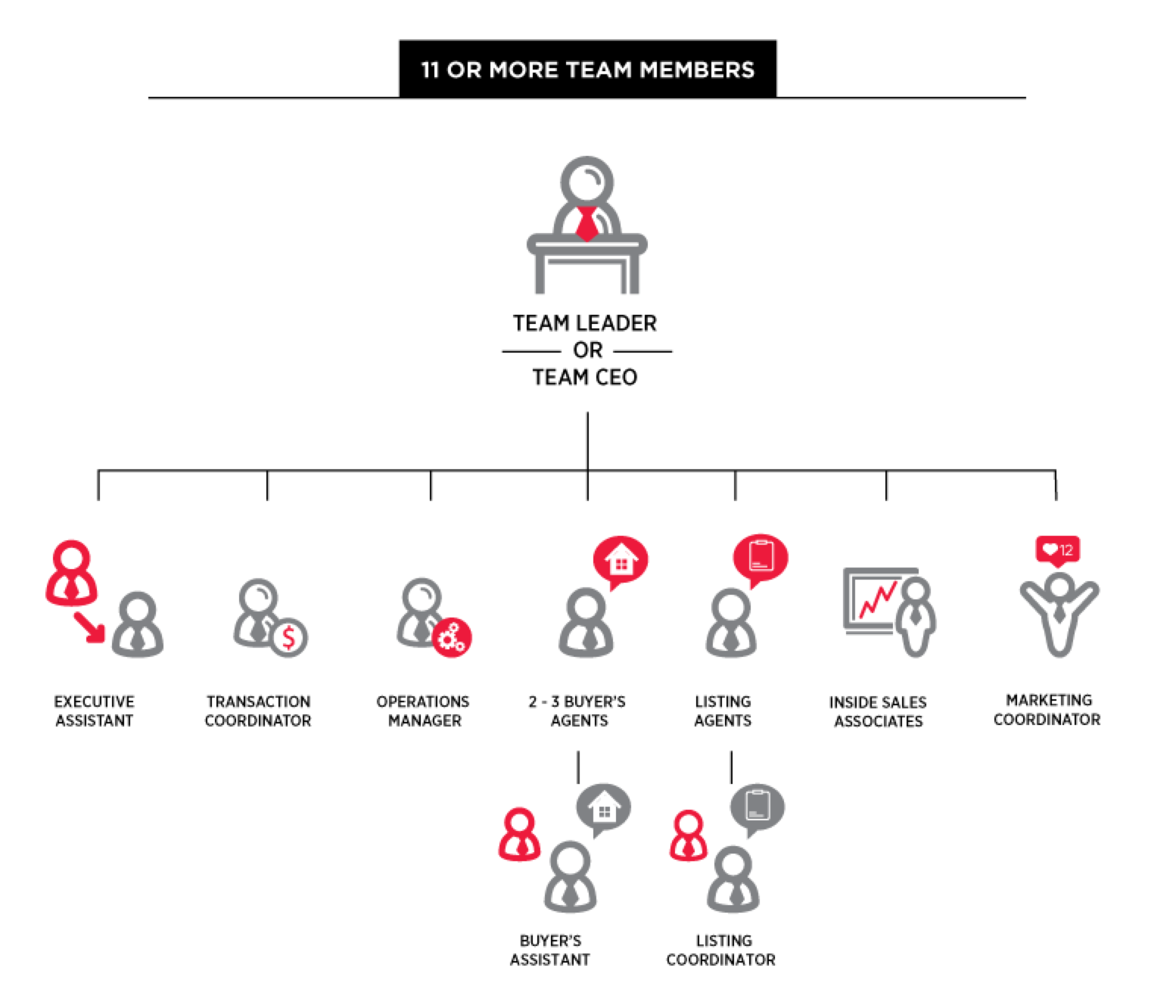The way you structure your team will be as important as those you structure it with. This is your team; with a solid plan and a brokerage that offers outstanding support while allowing you to maintain control of your operation, all of the moving parts can neatly fall into place according to your specifications. However, for that to occur, you need to map out an infrastructure based on the size of your team and the goals you have for the business. Keep these seven considerations in mind when structuring your team.
REGULATIONS
The regulations and laws regarding real estate transactions, licensing, and agents are formidable—and unfortunately, rules vary by state. Even standard guidelines are complex and must be considered for the infrastructure you are implementing or expanding. For example, which licenses must your team members hold so they can effectively perform their duties? Regulations shouldn’t be a deterrent against starting a team, but they must be considered as you develop and maintain a team.
PICKING AN INFRASTRUCTURE
The team infrastructure you choose often depends on what goals you have for your business, your coworkers, and the revenue you hope to achieve. A startup team may include a few team members, enough to set your venture in motion and leave the door open for growth and scalability. Established teams looking to revamp or expand their operations may need more support staff. Your infrastructure—especially if you are tweaking an existing team—may also depend on the skill sets of your existing team members. What’s important is that you map out your team, hire or train to fill gaps, and think about how your team might grow beyond the infrastructure you choose.

STRIVING FOR SUCCESS: AVOID CHURN
Team frameworks that highlight you and your team members’ strengths, define roles, and keep everyone happy are primed to be successful. Team members feel fulfilled knowing their efforts are appreciated and that they contribute to reaching overall goals. A lack of a framework often results in employee churn—unhappy team members who leave for other jobs. Replacing team members is expensive: their departure leaves a work gap, hiring someone new takes time and money, and any training and mentoring you have invested in the former coworker flies out the door with them. Although some churn is inevitable (after all, few people stay at a one job forever), your infrastructure, or lack thereof, shouldn’t be the reason why team members want to leave.
UNDERSTAND WHAT YOU’VE CREATED
A challenge for existing teams is to identify the gaps in their frameworks and and adjust processes or hire to fill those gaps. Just bringing on a few extra members doesn’t automatically lead to smooth sailing; you can still find yourself in constant crisis mode, putting out fire after fire, which can deflate even the most enthusiastic teams. Honestly assess what can be done better and what needs to be added. Team-centric brokerages are a great resource for helping with this assessment; these partners can recommend frameworks and strategies to form a team that clicks.
Just bringing on a few extra members doesn’t automatically lead to smooth sailing; you can still find yourself in constant crisis mode, putting out fire after fire, which can deflate even the most enthusiastic teams.”
TAKE ADVANTAGE OF TECHNOLOGY
The life of a successful lone wolf real estate agent is a juggling act—you are constantly trying to keep all those butcher knives (we’ll assume you are that daring!) in the air. Teams relieve this constant state of frenetic activity, but many moving parts remain that a team leader may overlook. Technology can not only settle down your life, but also increase productivity and save money. For example, the software offered by top-flight brokerages might include marketing tools, transaction management resources, paperwork review tools, and more—all part of the package when working with the broker. An Inman survey on teams found that over 80 percent of respondents believe technology assists teams in the way they work. Combined with an outstanding team, technology can improve every aspect of your business and give your team members the resources to deliver excellent work.

TEAM AGREEMENTS
The real estate team concept stresses collaboration and collegiality, but you must remember that it is still a business—and any thriving business operates within a framework of guidelines, policies, and procedures. Therefore, establishing clear agreements on the way your team operates, the roles and responsibilities team members will follow, and the amount every member is compensated is essential for efficiency and compliance. These team agreements should include:
- Team titles, definitions, and responsibilities
- Licensing policies
- Disclosure requirements
- Compensation structures and commission splits
- Recruiting policies
- Separation procedures
- Confidentiality policies
- Referral fees
Moving these steps out in front will help to avoid any confusion or hard feelings that could get in the way of your team’s successful operation. A team-centric brokerage will help provide guidance on these agreements and consult with you along the way so that you are leaving no stone unturned.




















